
7 Mental Skills for Success on Race Day
The right mental skills can help you unlock faster swimming on race day. Here is a look at the right skills to use for competition.
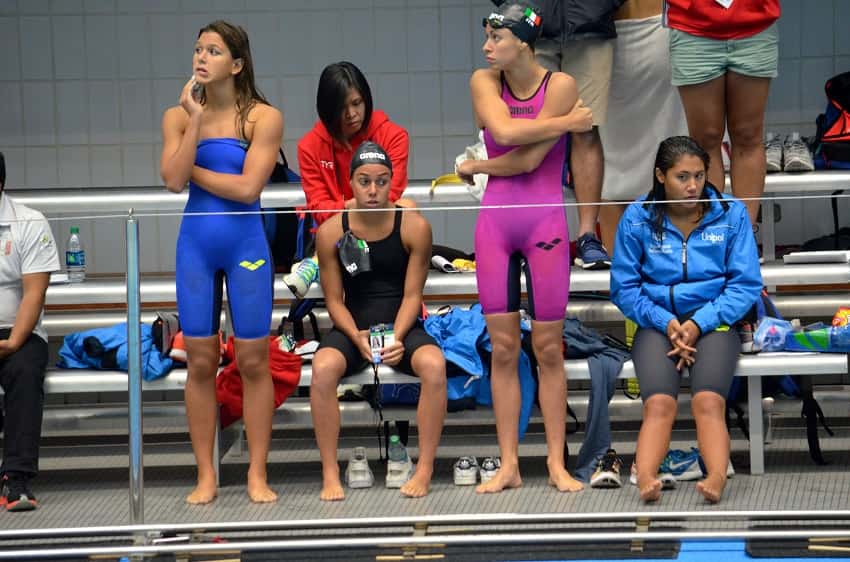
We’ve all trained or competed with the swimmer with limitless talent. Here’s the upside on being less talented than the swimmer in the next lane.
Looking over you see the rooster-tail of water coming off your teammate’s kick as he motors past you with seeming ease.
Another workout, another dusting.
Awesome.
It’s a common problem we all experience at some point or another: training or competing against The Natural, the swimmer who can barely show up to practice and still kick your butt all over the place by virtue of a sickly amount of talent.
Making this worse is when your work ethic far outshines the hard work being performed by The Natural…and they are getting all the attention from a fawning coach as well.
It can feel deflating.
It can make us feel like our training is pointless.
The reality is this: you can’t change talent.
You can only change what you can do with yours.
Here’s why you should turn your chlorinated frown upside-down:
It’s easy to look across the lane rope and wish that you had the other-worldly talent of someone else.
But get this: someone is looking at you and thinking the exact same thing.
There is a swimmer in the other lane that is looking at you and wishing and pining for the talent you have. There will always be someone faster, someone more talented, someone more genetically gifted, etc. Just like there will always be someone with less talent, who is less further along than you are.
Now, you can waste energy and focus by commiserating over your “misfortune”, but besides tickling your desire for self-pity, it’s not going to help you swim faster.
Comparison-making can be a powerful and motivational tool…when it is used properly. Using the talent of others as a yardstick for yourself can be used for good or bad.
It’s okay to get mad. To get pissed. As long as you are using those “negative” emotions to make positive changes in the pool (same goes for life in general).
If you are looking across the lane rope and using the frustration and dissatisfaction to rise to the occasion more often during your swim practices, and if you use that sense of unfairness to push you to recover harder, eat better, and sleep more… Well, what do you think is gonna happen?
You are going to improve like crazy.
On the other hand, if you use the performance of other swimmers as a barometer for how you should train today, for how you should prepare to give your best, and for how you take care of yourself in and out of the pool…well, at that point comparison-making becomes a detriment to your swimming.
For every naturally-gifted swimmer that “makes it”—and there are plenty—there are many, many more talented swimmers who never get anywhere because they relied on their talent alone.
They were spoiled by the early and easy success talent gave them. They expected talent to be “enough” to be successful over the long term.
Being talented brings with it expectations that it be fully developed (you owe it to yourself to develop it, as onlookers, parents and coaches will remind the talented swimmer), which can mess with a swimmer’s self-identity.
Is talent helpful?
Of course, it can be.
But it is a lousy predictor of work ethic. It doesn’t dictate character. And it doesn’t instill a tenacious attitude.
I’ve written before on the limitations and burden of talent. One of the “curses” of talent is that it blinds you to what high-grade swimming truly entails.
Talent hides the hard work, the dedication, the commitment to the details that are required to be successful in the water.
The upside for our less talented swimmer is that they learn early on what it takes to be successful. They are more aware to the changes and improvement they need to make.
Talent can blind the gifted into thinking they don’t need to improve their skills. That the details don’t matter.
Hard work will take you further than talent ever will. And more importantly, you will have earned it.
What does getting bummed out over someone else’s talent get you?
Nothing.
This form of comparison-making is debilitative. It erodes confidence. It instills a sense of victimization. It is not fair, so what’s the point of even trying?
Getting better in the water is a trip, man.
Conquering Hell Week. Doing the 100x100s. The first time you crack a minute in training. And so on.
These are moments that stick out, and that are inordinately personal. They are things you did, and they are the things that constitute your journey as a swimmer.
Being perpetually distracted by what the swimmer in the next lane is doing steals these experiences from you. It takes away the opportunity to focus on your own process. To develop better self-awareness. To check your weaknesses, to multiply your strengths, and to recognize your moments of excellence and resilience.
What to Do When You Are the Slowest Swimmer in the Group. This post was in response to an email I received from a newsletter subscriber who was anxious about moving up to a new group.
Why You Should Be Grading Your Effort After Practice. One of my favorite ways to stay consistent and accountable in practice is this simple technique. Takes about three seconds, and will keep you honest about the effort in the water.

Olivier Poirier-Leroy Olivier Poirier-Leroy is the founder of YourSwimLog.com. He is an author, former national level swimmer, two-time Olympic Trials qualifier, and swim coach.

The right mental skills can help you unlock faster swimming on race day. Here is a look at the right skills to use for competition.
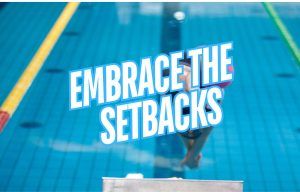
Frustrated with setbacks in the pool? Here are some tips for improving your ability to embrace setbacks and swim faster.
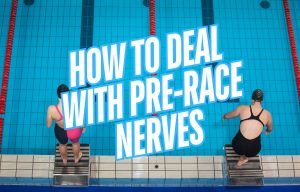
Struggling to swim fast under pressure? Here are some tips for how to manage pre-race nerves on race day.
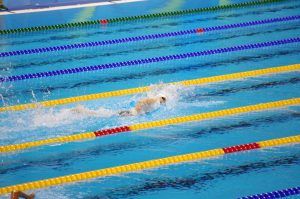
Swimmers often find themselves stuck with doubt when it comes to doing tough things in the water. Here’s a simple question to ask when you find doubt and uncertainty stopping you from excellence.
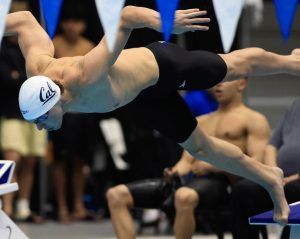
Looking to take your mindset and swimming to the next level? Here are five things you can learn from Jack Alexy, one of the fastest freestylers on the planet.
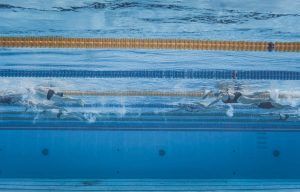
Looking to improve faster this season? Start by reflecting and learning from your swims.
SITE
SHOP
GUIDES

LANE 6 PUBLISHING LLC © 2012-2024
Join 33,000+ swimmers and swim coaches learning what it takes to swim faster.
Technique tips, training research, mental training skills, and lessons and advice from the best swimmers and coaches on the planet.
No Spam, Ever. Unsubscribe anytime.
